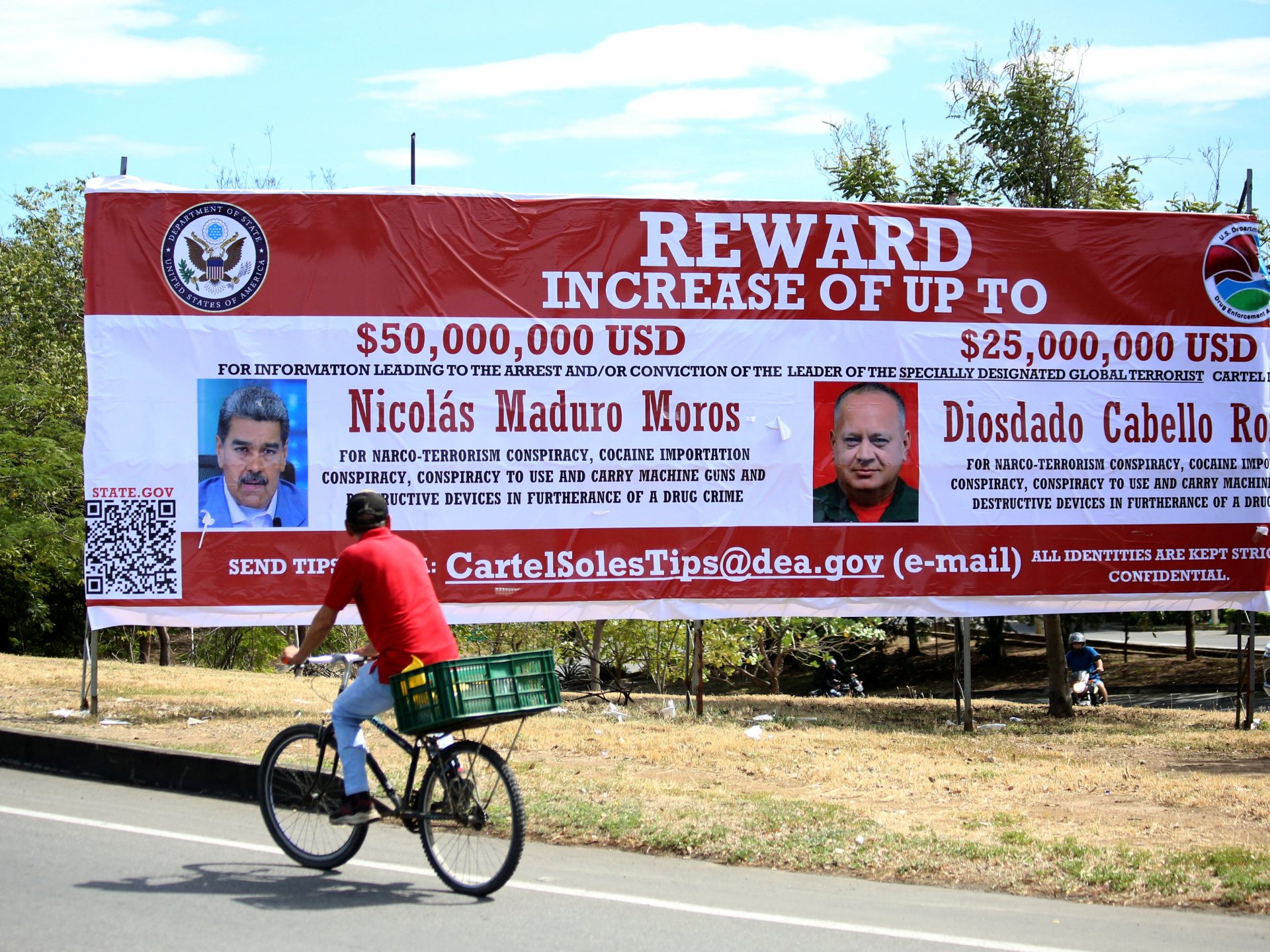Trump's $50M Reward: Can it Topple Venezuela's Nicolas Maduro? An In-depth Analysis
 Venezuela
Politics
Venezuela
Politics

An analysis of the controversial $50 million reward offered by the US for the capture of Venezuelan President Nicolas Maduro, exploring its potential impact and
The unprecedented $50 million reward offered by the United States for information leading to the arrest or conviction of Venezuelan President Nicolas Maduro sparked considerable debate and speculation regarding its potential to destabilize his embattled regime. Announced by then-President Donald Trump's administration, this bold move intensified pressure on Maduro, who faces accusations of narco-terrorism, corruption, and drug trafficking.
The Context of the Bounty
Venezuela has been embroiled in a profound political and economic crisis for years, characterized by hyperinflation, widespread shortages, mass emigration, and significant human rights abuses. The US, along with many international allies, has long refused to recognize Maduro's legitimacy, instead backing opposition leader Juan Guaidó. The bounty, issued in March 2020 by the Justice Department, was part of a broader strategy that included severe sanctions aimed at isolating Maduro and facilitating a democratic transition. Attorney General William Barr described Maduro as a "significant player" in a cocaine trafficking conspiracy, alleging he collaborated with Colombian FARC rebels to flood the US with drugs.
A Tactic of Maximum Pressure
This aggressive tactic aimed to exploit divisions within Maduro’s inner circle and encourage defections. By placing a hefty financial incentive on his head, the US sought to compel those loyal to the regime to consider betraying their leader for personal gain. Proponents of the strategy believed it could hasten Maduro's downfall by making his continued rule untenable and dangerous for those around him. It reflected a "maximum pressure" campaign designed to dismantle his power structure.
Challenges and Controversies
However, the legality and effectiveness of such a bounty were immediately questioned by critics. International legal experts raised concerns about sovereignty and whether one nation could unilaterally issue such a warrant and reward for the leader of another sovereign state. There were also doubts about its practical impact, with many analysts suggesting that Maduro's security apparatus, largely loyal and well-compensated, would be unlikely to betray him for a bounty, especially given the risks involved. Critics also pointed out that such measures could further entrench Maduro, allowing him to rally nationalist sentiment against perceived foreign interference.
Geopolitical Implications
Beyond its domestic impact, the bounty also had significant geopolitical ramifications, particularly concerning US relations with Latin America and global powers like Russia and China, which continue to support the Maduro regime. It highlighted the deep divisions in the international community regarding Venezuela's political future and the appropriate methods for resolving the crisis. While some viewed it as a legitimate tool to combat transnational crime and human rights abuses, others saw it as an overreach of US power and a potentially dangerous precedent.
Conclusion: A Complex Strategy
Ultimately, while the $50 million reward certainly amplified international scrutiny on Nicolas Maduro and his regime, it did not directly lead to his capture or the collapse of his government. Maduro remains in power, albeit under immense internal and external pressure. The bounty stands as a stark reminder of the complex and often controversial strategies employed in international relations to influence political outcomes in sovereign nations, showcasing the limits and challenges of such unconventional interventions.